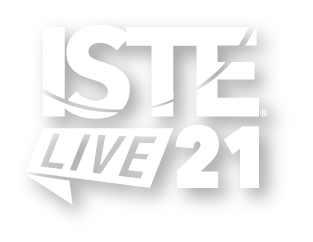

3 Steps to Moving University Courses Online During a Pandemic! |
Listen and learn : Research paper
Roundtable presentation
Research papers are a pairing of two 20 minute presentations followed by a 5 minute Q & A.
This is presentation 2 of 2, scroll down to see more details.
Other presentations in this group:
Dr. Lucretia Fraga Dr. Susan Hall Kathy Bottaro| Audience: | Teachers, Teacher education/higher ed faculty, Professional developers |
| Attendee devices: | Devices not needed |
| Topic: | Innovation in higher education |
| Grade level: | Community college/university |
| Subject area: | Higher education, Inservice teacher education |
| ISTE Standards: | For Educators: Learner
|
The researchers situate Vygotsky’s (1986) sociocultural approach to cognitive development and Freire's (1990) transformative ideology within the broader framework of a social constructivist paradigm. This social constructivist paradigm consists of broad epistemological principles resulting from shifts in the basic way one views knowledge. It is a shift away from the traditional objective idea that knowledge is discovered and exist as one Truth. The social constructivist paradigm views the researcher or observer as being keenly differentiated from what is observed and is a move toward the notion that knowledge is constructed or created (Strauss & Corbin, 2015). Therefore, it is with this viewpoint that knowledge is not uncovered but rather socially constructed by groups of people that we, the researchers approach this study. As constructivists researchers, we speak of knowledge production rather than the discovery of knowledge.
The perspective of the social constructivist paradigm, with the view of knowledge as created by individuals and groups of individuals is a profoundly critical aspect of knowledge construction. Additionally, one of the most important factors of the foundational assumptions of Vygotsky (1986), is learning and social interaction has become increasingly valued and used in the educational field. Vygotsky (1896-1934) believed that the surrounding social and cultural context of learning has an important role in learning and that it is through the interactions of individuals where one does truly learn. He asserted that, “every function in [one’s]...cognitive development occurs twice; once on the social level, and later, on the individual level” (Vygotsky (1978, p. 57). Learning or the construction of new knowledge occurs first through social interactions (interpsychological) and then it is internalized (intrapsychological). Put simply, new knowledge is constructed through first interacting with others and then inside the individual.
Furthermore, the researchers employ a Freirean lens of “transformation” which includes both reflections of the observer/participant and action to empower and change life or teaching practices for the better (Freire, 1990). According to these principles, transformation must come from within the community or group with which change is needed and desired. Consequently, as faculty/researchers involved with new technology tools and being a part of the research team we become active participants. As a result, as active participants, we engage in both reflection and act toward change. This results in a broad paradigm of social constructivism employing both a sociocultural and transformative lens via an intersection of Vygotskian (1978) and Freirian (1990) theories which served as an approach to identify and implement the transformation of practices among higher education faculty.
Research Questions
In what ways did the PD experience foster a sense of community among consistent participants?
In what ways did the PD experience support their transition to online teaching?
In what ways did the PD experience change their pedagogical practices?
Research Participants
The participants will be up to 6 faculty that have engaged in numerous professional development opportunities focused on teaching online.
Methodology of the Research
This qualitative research examines the perceptions of faculty related to the design and implementation of professional development supporting the sudden move to online teaching in response to the COVID19 emergency.
Qualitative Design. In keeping with the principles of qualitative research, the goal of this study is to gain deeper understandings about learning and teaching experiences of a specific population in a particular context. The population, or participants, are faculty members who engaged in professional development opportunities while moving their courses online.
Action Research. Participants include both those who engaged in the faculty development and those who provided it. The latter group is interested in understanding the impact of the community that evolved during the faculty development process. Hence, the decision was made to employ an action research method for this investigation. “Action research is arguably the most valid, powerful, and important tool that professionals in PreK–16 settings have at their disposal to make meaningful, ongoing, and sustained positive changes to their practice” (Woodland, 2018). The recursive model for action research expects that the teacher-researchers will engage in an ongoing and recursive process of data gathering and refining their practice, including the following goals:
a) to generate improvement
b) to take action to generate knowledge
c) to use that knowledge to generate improvement (point a) and inform ongoing instructional design
Data Set 1. The first set of data, gathered from existing university surveys, addressed instructors’ initial perceptions of the shift to online teaching.
Data Set 2. Selected instructors will be invited to participate in semi-structured interviews reflecting on their experiences with relevant professional development. At this time, informed consent will be sought, and details of the study explained.
Data Set 3. The third set of data will be the notes from conservations among those who organized, implemented, and evaluated the professional development sessions.
Analysis Plan
As per the demands of action research, the faculty researchers will engage in recursive and ongoing analysis. A thematic inductive analysis allowed the researcher to discover themes from the data, instead of pursuing predefined themes (Marshall & Rossman, 2006). For this study, open and axial coding will be used in conjunction with NVIVO qualitative research software. In one version of the NVIVO software, opening coding is referred to as free nodes and axial coding is referred to as tree nodes.
All qualitative data collected from the interviews, practitioners’ reflective notes, and responses to existing university surveys will be coded using an open coding approach by hand and within the NVIVO software. These data will be categorized by themes that arise from the initial examination of the data.
Justification of Sample Size
The purpose of qualitative research is to probe deeply to unearth the complexities of a particular experience in a specific context. Such deep observation and analysis require that the pool of participants remain of a manageable size for the action research to move forward in a timely way. Therefore, the researchers thought it advisable to use case studies focusing on approximately 6 faculty members and the data generated from their own reflective practice.
Preliminary findings suggest that collaborative support to shift to online teaching resulted in an organic community of practice. In this study, one participant states this kind of professional development that occurred organically during the unpredictable COVID semester provided the flexibility and opportunity to learn at their own pace and to ask as many questions without hesitancy. Further disaggregation of data is still needed for complete results of this study.
There are many studies regarding professional development in higher education. However, during this unforeseen pandemic, the need and reality of needing support quickly created an organic community at this institution of higher education. This study is part of the efforts to document a historic shift in American higher education.
Alexander, B. (2004). Going nomadic: Mobile learning in higher education. EDUCAUSE Review, 39(5), 29-35.
Coffey, A., & Atkinson, P. (1996). Making sense of qualitative data: Complementary research strategies. London, Thousand Oaks, CA: Sage Publications.
Georgina, D.A. & Hosford, C. (2009). Higher education faculty perceptions on technology integration and training: Inferential results. Teaching & Teacher Education: An International Journal of Research and Studies, 25(5), 690-696.
Marshall, C. & Gretchen B. Rossman, G. B. (2006). Designing qualitative research. Thousand Oaks: Sage Publication.
Strauss, A. & Corbin, J. (1990). Basics of qualitative research: Grounded theory procedures and techniques. Newbury Park, CA: Sage Publications.
Patton, M.Q. (2002). Qualitative research & evaluation methods. Thousand Oaks, CA: Sage Publications.
Prensky, M. (2001). Digital natives, digital immigrants. On the Horizon, 9.
Spotts, T. (1999). Discriminating factors in faculty use of instructional technology in higher education. Educational Technology & Society, 2(4), 92−99.
Strauss, A. & Corbin, J. (1994). Grounded theory methodology. In NK Denzin, N.K. & YS Lincoln. Y.S. (Eds.) Handbook of qualitative research (pp. 217-285). Thousand Oaks, CA: Sage Publications.
Wagner, E. D. (2005). Enabling mobile learning. EDUCAUSE Review, 40(3), 40–53.
Wagner, E., & Wilson, P. (2005). Why learning professionals need to care about mobile learning. American Society of Training and Development, 59(12), 40-43.
Vygotsky, L. S. (1978). Mind in society. In the Development of Higher psychological Processes. Cambridge, MA: Harvard University Press.
Herriott, R. E., & Fireston, W. A. (1983). Multisite qualitative policy research: Optimizing description and generalizability. Educational Researcher, 12, 14-19.

Dr. Lucretia M. Fraga earned her Ph.D. in Interdisciplinary Learning and Teaching with an emphasis in Instructional Technology from The University of Texas at San Antonio (UTSA). Dr. Fraga brings experience in pedagogy, instructional technology and design, teacher education, and professional development of higher education faculty. Her research interest involves theoretical foundations for mobile and ubiquitous learning, emerging tools and technologies for learning, integration of technology by faculty and pre-service teachers, pedagogical practices for learning and professional development of faculty.


Kathleen Bottaro, M.A., currently serves as the Director of Instructional Technology Services for the University of the Incarnate Word in San Antonio, TX. Prior to her time in higher ed, she served as a director of technology for a K-12 school district, an instructional technology program coordinator, and an elementary school teacher and librarian. Over the past ten years, she has presented at numerous state and national instructional technology conferences. Her professional interests focus on leveraging technology to enhance instruction and increase student engagement no matter the instructional modality.